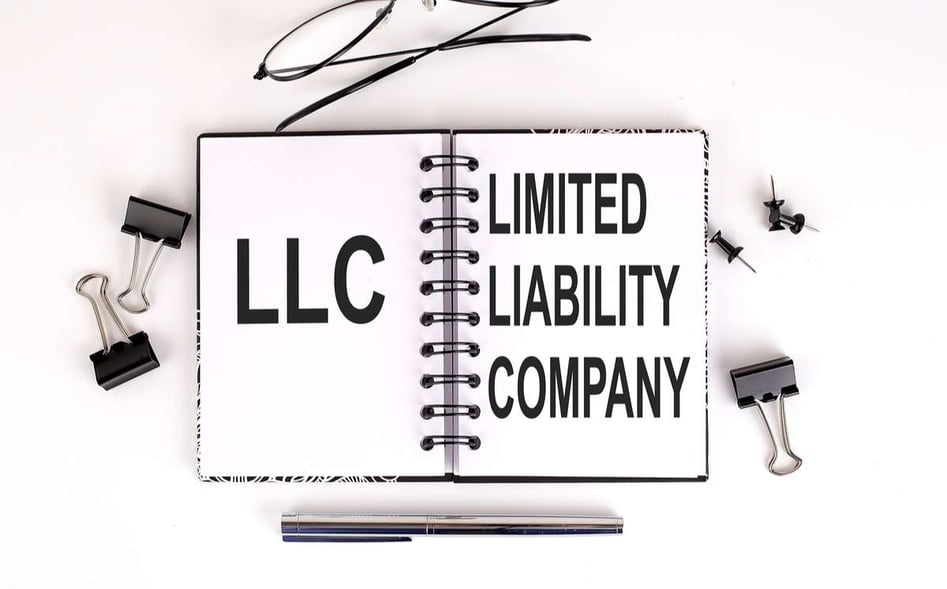Becoming a successful real estate investor in Atlanta, GA, requires more than simply buying homes and leasing them to renters. It's also critical to protect your investments in any way you can to help minimize income loss or reduce the risk of costly lawsuits.
Have you considered a business entity for your properties? Even if you have just one rental and you're starting as a new investor, incorporating your property is a smart way to protect the asset and your income—especially as you grow your portfolio. What's the best legal entity for rental properties? Our Atlanta property management experts outline here what property owners need to know!
Set Up Something (No Matter What)
You can operate an Atlanta rental property without setting up a business entity. There is no legal requirement to incorporate buy-and-hold rentals. If your rental income is more of a hobby or additional income to your full-time career and salary, choosing an entity might not be a high priority. However, the best Atlanta property management companies recommend setting up something is better than leaving yourself unprotected without incorporation.
Operating as a sole proprietor leaves both your business and personal income vulnerable in the event of a lawsuit. With the protection of incorporation, your rental property income and assets remain separate from personal income and assets. If an unhappy tenant sues you for any reason, they cannot come after income earned outside of your rental income—as long as you have already placed rental properties into a business entity.
While that might sound scary, there's no need to spend a lot of time and money incorporating your properties. Consult with a professional Atlanta property manager and lawyer to set up the ideal incorporation for your rentals.
Think About Liability and Protection
Protecting yourself against liability is essential for long-term success as a property owner in Atlanta. While you could experience years without any issues from contractors or residents in your property, nothing is guaranteed. One lawsuit from a renter that became injured when you neglected to fix a stair railing at your property could be all it takes to wipe out your cash reserves and leave you unable to operate your property as a rental legally.
In many cases, real estate investors choose a limited liability company (LLC) for incorporating rental properties. It is one of the simplest and most cost-effective ways to separate business assets and income from personal income and often delivers plenty of protection for investments.
However, operating as a sole proprietor means you are taking all liability on yourself and putting your home and finances on the line in the event of a lawsuit. With an LLC, Atlanta property owners aren't bound by more complex rules and reporting requirements than an S Corporation. An LLC also offers tax benefits and requires far less paperwork to set up and report on every year.
LLC vs. S Corp
An Atlanta property manager will tell you that it's important to consider taxes as you form your business entity. Since the IRS considers LLCs a "disregarded entity," property owners aren't required to pay federal taxes on top of self-employment taxes. However, as a sole proprietorship, you will report your Atlanta rental property income and expenses on your tax return. When you file as a limited liability company or limited partnership, the tax filing happens in the name of the business.
With an S Corp structure, you might be able to reduce your personal tax burden since the business pays you a salary with payroll taxes covered by the corporation. However, S Corporations require more stringent annual reporting and additional rules and requirements to follow the law.
As many property managers know, real estate investors appreciate the simplicity of an LLC compared to an S Corporation, as well as better tax benefits and plenty of legal protection.
What Are the Requirements of an LLC?
Setting up your LLC in Georgia requires only a small fee of about $100 to start and an annual renewal fee of $50. It's also simple to file with online options available. However, our property management team recommends working with your lawyer to ensure everything is in order and that your LLC is filed correctly.
To register as an LLC, choose a name for your rental property business, gather appropriate permits, file articles of organization, and make sure you understand the complete requirements and follow through with compliance. Let property managers help along the way!
An Atlanta Property Management Company Provides Guidance
Choosing a legal entity is a smart decision, but you don't have to make it on your own. Conduct plenty of research about how an LLC or an S Corp will affect your business and analyze the protections offered by each entity. Consult Atlanta property management experts and your legal counsel to finalize the business entity that works best for your properties and long-term success.
While forming a corporation requires some time, money, and effort, it's well worth it to protect your investments! Let Renters Warehouse Atlanta help answer any questions you have about taking this critical step. We're also here to deliver excellent full-service property management in the Atlanta area and boost your returns.
Learn more about growing your portfolio the right way! Get our free guide, "Real Estate Investing: Grow Your Portfolio."







